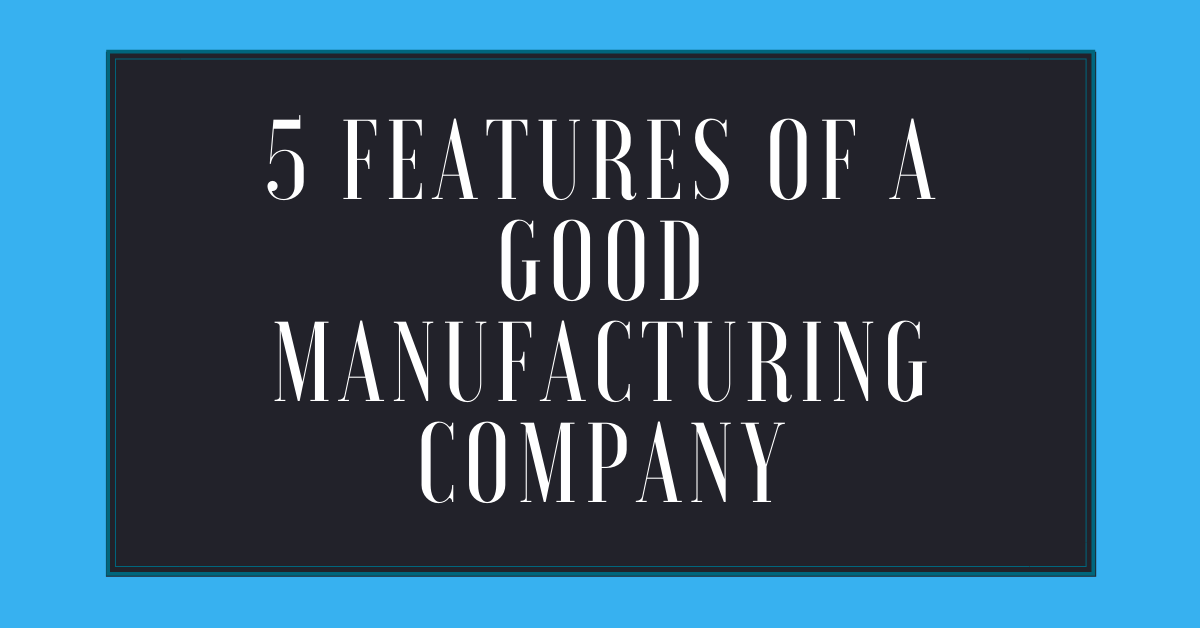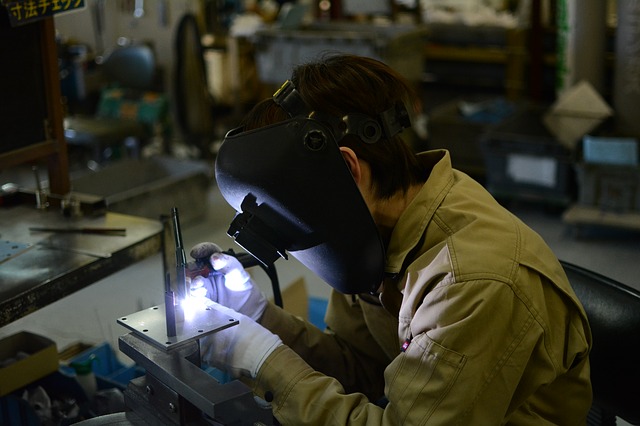When looking for a manufacturing company to work with, some things can help you pick the right one.
They must carefully meet all of these factors before choosing them because it will determine how well your product turns out and whether it works correctly or not.
Here’s what to look for in a reputable manufacturing company:
Table of Contents
A Good Reputation
The first thing you want to check for is a good reputation. This will tell you how reputable the company is and if they have had any complaints. You can usually find this information online by quickly searching them.
If there are any negative reviews, it might be best to steer clear of that company. However, if there are mostly positive reviews, you can be more confident in working with them.
Experience in the Field
Next, you want to ensure that the company has experience in the field. This means they will have more knowledge about producing your product correctly and meeting your specifications.
If they do not have much experience, it could lead to problems, so you’ll want to avoid this.
However, if they have much experience, you can be more confident that the product will turn out well.
Capability to Handle Large Orders
Another thing you’ll want to look for is the company’s capability to handle large orders. This means they will have the resources and human resources to take on your project and produce it correctly.
If they cannot handle a large order, it could delay the entire process, and you don’t want that. However, if they can handle it, you can be more at ease knowing your project is in good hands.
A Clear Contract
Make sure there is an explicit contract between you and the manufacturing company. This will help protect both of your interests from any issues.
If you have not received one before starting, then ask them for it to ensure everything is in order and spelled out, so nobody gets left behind or misinformed about anything.
Proper Equipment
The company should also have the proper equipment to produce your product. This means they will have the machines and tools necessary to do the job correctly.
If they do not have the right equipment, it could lead to delays or, even worse, a botched product. However, if they have the right equipment, you can be more confident in the product they will produce.
Hallmarks of Excellence: Dissecting the Traits of a Good Manufacturing Company (FAQs)
The manufacturing sector is the backbone of many economies. But what defines an excellent manufacturing company? Here are some FAQs to unveil the key features that set them apart:
What makes a good manufacturing company?
Several key features contribute to a good manufacturing company:
- Quality Products: The cornerstone of success is a consistent commitment to producing high-quality goods that meet or exceed customer requirements.
- Efficiency and Productivity: Operating efficient processes minimizes waste and optimizes production, leading to cost-effectiveness and timely delivery.
- Innovation and Continuous Improvement: A good manufacturer strives to constantly improve processes, embrace new technologies, and develop innovative products to stay ahead of the curve.
- Strong Quality Control: Robust quality control measures ensure consistent product quality and minimize defects.
- Supply Chain Management: Effective management of suppliers and the supply chain is crucial for smooth operations and timely production.
- Skilled Workforce: A talented and well-trained workforce is essential for operating machinery, maintaining quality, and driving innovation.
- Safety Culture: Prioritizing safety throughout manufacturing protects employees and fosters a positive work environment.
- Customer Focus: A good manufacturer understands customer needs and strives to deliver products and services that meet or exceed their expectations.
- Environmental Responsibility: Sustainable practices and minimizing environmental impact are becoming increasingly important for manufacturers.
Are there any specific certifications that mark a good manufacturer?
While certifications don’t guarantee a good manufacturer, some well-regarded certifications demonstrate a company’s commitment to quality and specific standards. These can include:
- ISO 9001: A widely recognized standard for quality management systems.
- ISO 14001: Focuses on environmental management systems.
- Six Sigma: A methodology for continuous improvement and reducing defects.
READ ALSO: Ways Manufacturers Can Benefit from Going Online
What are some important factors to consider when choosing a manufacturing partner?
Here are some key considerations:
- Quality reputation: Research the company’s quality and customer satisfaction track record.
- Capability and experience: Do they have the expertise and experience to manufacture your specific product?
- Production capacity: Can they meet your production volume requirements?
- Location and lead times: Consider factors like geographical proximity and delivery timelines.
- Cost competitiveness: Compare pricing and quotes while considering overall value, not just the initial cost.
By understanding these features and considerations, you can make informed decisions when choosing a manufacturing partner that aligns with your needs and values.
A Final Word
So, before hiring a manufacturing company to work with, you need to ensure they carefully meet all of these factors and ensure your project turns out well when it’s done.
This way, you can avoid having any issues or delays, which could take up valuable time from your end.
By following these tips, you’ll be able to find the right company to work with and avoid any headaches down the road.
INTERESTING POSTS
- 8 Tips To Improve At Call Of Duty: Modern Warfare
- Apple Launches Open-source Password Manager for Developers
- Windows RDP ports exposed by Malware
- Clear VPN Review – The Pros And Cons Of Using VPN Services
- Essential Laptop Gadgets for Gamers
- 5 Certified Benefits of Identity Theft Protection
- Using Artificial Intelligence To Keep Your Financial Data Safe [Infographics]
- Unlocking The Power Of Smart Manufacturing: 10 Essential Elements
About the Author:
Chandra Palan is an Indian-born content writer, currently based in Australia with her husband and two kids. She is a passionate writer and has been writing for the past decade, covering topics ranging from technology, cybersecurity, data privacy and more. She currently works as a content writer for SecureBlitz.com, covering the latest cyber threats and trends. With her in-depth knowledge of the industry, she strives to deliver accurate and helpful advice to her readers.
Christian Schmitz is a professional journalist and editor at SecureBlitz.com. He has a keen eye for the ever-changing cybersecurity industry and is passionate about spreading awareness of the industry's latest trends. Before joining SecureBlitz, Christian worked as a journalist for a local community newspaper in Nuremberg. Through his years of experience, Christian has developed a sharp eye for detail, an acute understanding of the cybersecurity industry, and an unwavering commitment to delivering accurate and up-to-date information.








